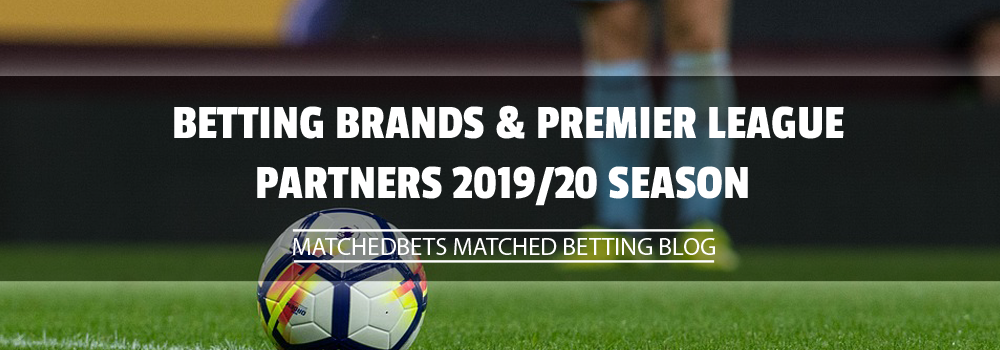Betting Brands & Premier League Partners 2019/20 Season
January 21, 2020

The gambling industry, worth £3 billion in annual tax revenue to the UK government, is under massive pressure from politicians, regulators and campaigners, all of whom are determined to dampen the burgeoning growth in the sector. The accessibility and anonymity of on-line gambling has been the most significant factor behind this growth. The number of people actively betting in the United Kingdom has increased with the ready access to online gambling and gaming forums, and of course the number of problem gamblers has increased accordingly. The UK Gambling Commission estimates that 0.7% of the general population are problem gamblers. That doesn’t sound much, does it? But in actual fact, that equates to over 400,000 people.
As a consequence, Fixed Odds Terminals at betting shops are now more tightly regulated, with a maximum stake of £2, and just last week the Government announced that from April 2020 punters can no longer use credit cards to pay for their bets, reducing the risk of problem gamblers building up unsustainable debts. These measures are not considered sufficient, however, and there is a sustained clamour to sever, or at least temper, the links between football and betting. Carolyn Harris, Labour MP and chair of the Gambling-Related Harm parliamentary group is adamant that “If sports teams keep going to the gambling sector (for sponsorship), all we are going to see is an increase in problem gambling. These companies are holding teams hostage and forcing them to exploit problem gamblers. They profit from misery.”
Certainly, the betting companies have invested heavily in football over recent years. Only three Premier League teams – Southampton, Brighton & Hove Albion and Sheffield United – started the 2019/20 season without a deal with a gambling company. The remaining seventeen clubs have a myriad of commercial deals with gambling companies, and many feature the names of betting companies prominently on players’ shirts and at the grounds. For example, Asian bookmaker W88 sponsor Aston Villa this season having previously sponsored Wolverhampton Wanderers. It is reckoned that football strip sponsorship is worth a staggering £350 million per annum to the Premier League alone, with football generating over £1.4 billion overall for betting companies each year.
The lower leagues also cultivate strong relations with the gambling industry. Football legend, Wayne Rooney, for instance, sports a shirt bearing the number 32. Why? Derby County promotes the online casino 32Red. Nigel Adams, Minister of State for Sport, Media and Creative Industries, is disgusted at this “very crafty” decision of the EFL Championship side and warns that if clubs fail to abide by the spirit of the Gambling Commission and FA rules “they shouldn’t be surprised if there is further action. We have to make sure we look after those who are vulnerable”.
The Football Association itself has been under fire, most recently for its tie-up with betting companies for live streaming of FA Cup matches. The FA was at the receiving end of enormous criticism from politicians, regulators and the public for progressing this tie-up, originally agreed in 2017, at the same time as launching Heads Up – a campaign to promote better mental health.
Following the Conservatives’ emphatic victory in the 2019 General Election, the gambling industry will be anxious to see how the new government will view more regulation of betting. Further restrictive measures will undoubtedly have an impact on the financial health of the industry and hence tax revenues but the Government must balance this with the adverse effects that problem gambling brings to the gamblers themselves and their families.
Comments